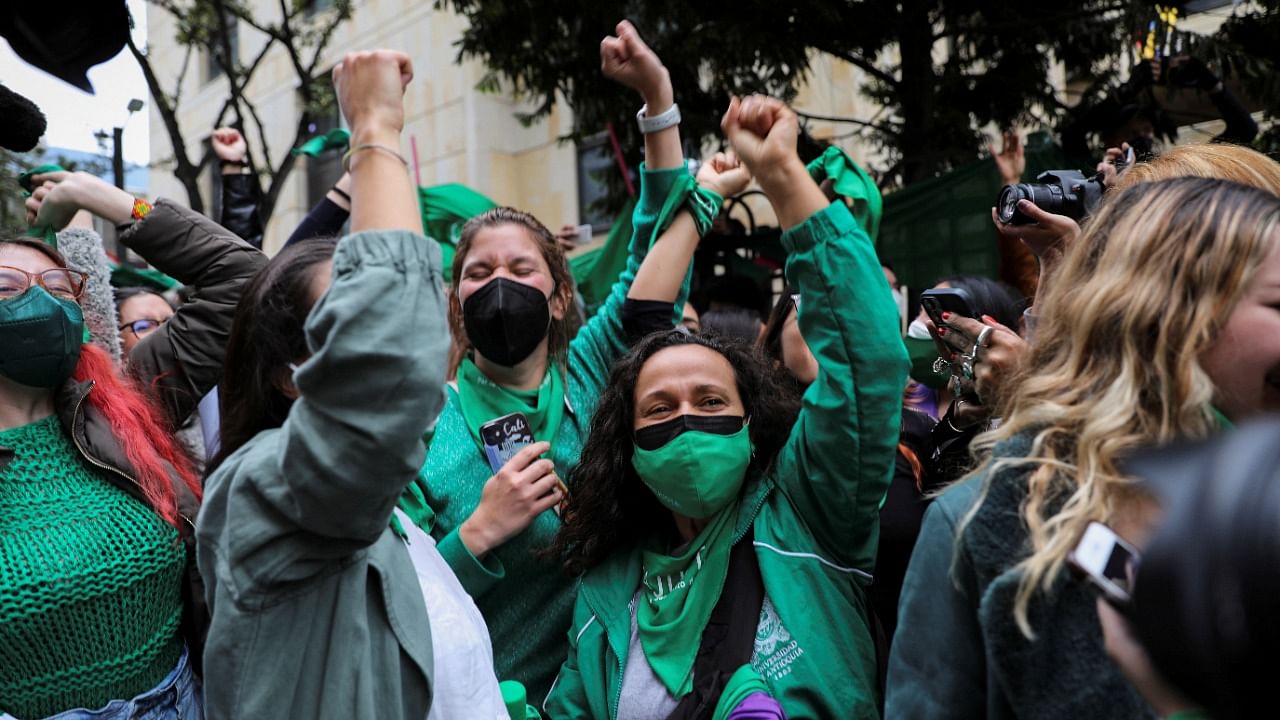
Colombia's high court decriminalized abortion up to 24 weeks of pregnancy on Monday in a landmark ruling for the majority-Catholic country, one of only a few in Latin America that currently allows the procedure.
"The performance of an abortion will only be punishable when it is carried out after the 24th week of gestation," the Constitutional Court said in a statement.
After that point, abortion will only be permitted in certain circumstances already established by the court, such as in cases of rape, if the health of the mother is in danger or if the fetus has a fatal condition.
Before Monday's ruling, abortion was only allowed under those three conditions, per a 2006 decision by the Constitutional Court.
Apart from those exceptions, both women and the doctors who performed their abortions would face prison sentences ranging from 16 to 54 months.
Hundreds of pro- and anti-abortion protesters gathered outside the court building in the capital Bogota.
Women wearing green scarves, the color of the pro-abortion movement, celebrated as it was announced the court voted 5-4 to decriminalize abortion. Nearby, anti-abortion protesters waved blue flags and knelt on the ground, praying.
"After the right to suffrage, this is the most important historic achievement, for the life, autonomy and full and equal realization of women," Bogota mayor Claudia Lopez tweeted.
Colombia is now the fifth Latin American country to decriminalize abortion access, along with Argentina, Uruguay, Cuba and Guyana.
In Mexico, the procedure is authorized for up to 12 weeks in the southern state of Oaxaca, the eastern state of Veracruz, the central state of Hidalgo and in Mexico City.
"Colombia is at the forefront of reproductive rights both regionally and globally," Catalina Martinez, a lawyer for the Causa Justa organization, told AFP.
Causa Justa sued Colombia over the unconstitutionality of the punishments for abortion. The Constitutional Court studied the group's arguments for its ruling.
According to information gathered by Causa Justa, about 5,500 investigations into alleged abortions have been conducted since 1998. About 250 women have been arrested as a result of the probes.
The feminist collective Mesa por la Vida y la Salud de las Mujeres said that, since the initial decriminalization in 2006 until 2019, 346 women have been punished for having an abortion, including 85 minors.
There are 24 women currently in prison for having an abortion, according to the prison authority.
The Catholic church and other religious groups in Colombia have repeatedly pushed back against decriminalizing abortion access.
"It is a decision that goes against life, against the family, against society," Marlene Herrera, one of the anti-abortion protesters outside the courthouse, told AFP.
Women's groups say that there are many obstacles to getting the procedure, even if a pregnancy falls into one of the categories allowed by the 2006 ruling.
Among the difficulties they allege are delays in health centers authorizing the procedure. Some doctors also object to performing abortions, forcing many women to get an illegal surgery.
No organization has an official figure on how many illegal abortions are performed in Colombia per year. A 2014 study by the health ministry estimates that 70 women die and 132,000 suffer complications annually from "unsafe abortions."
Check out latest DH videos here